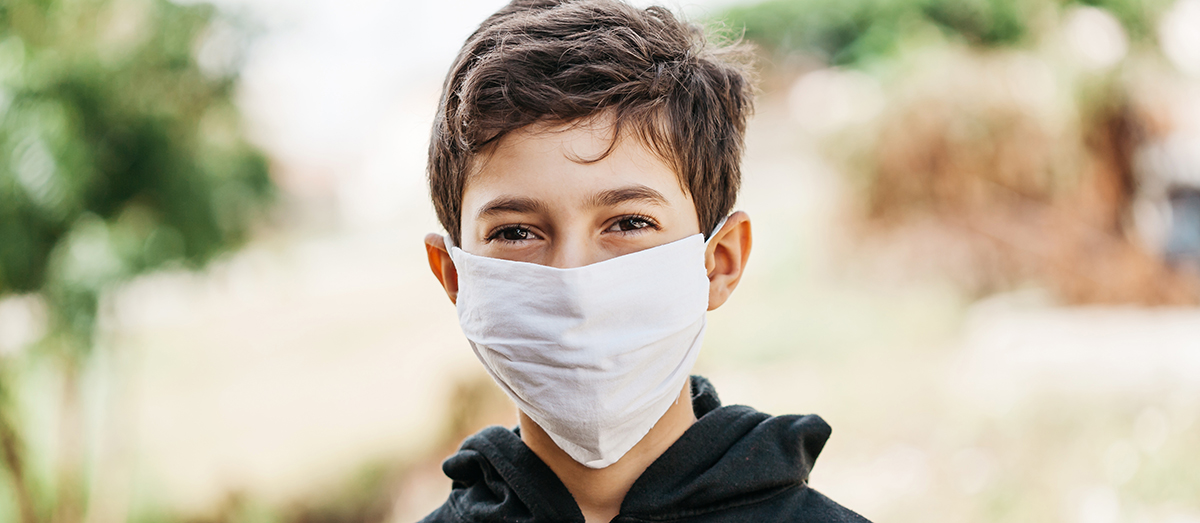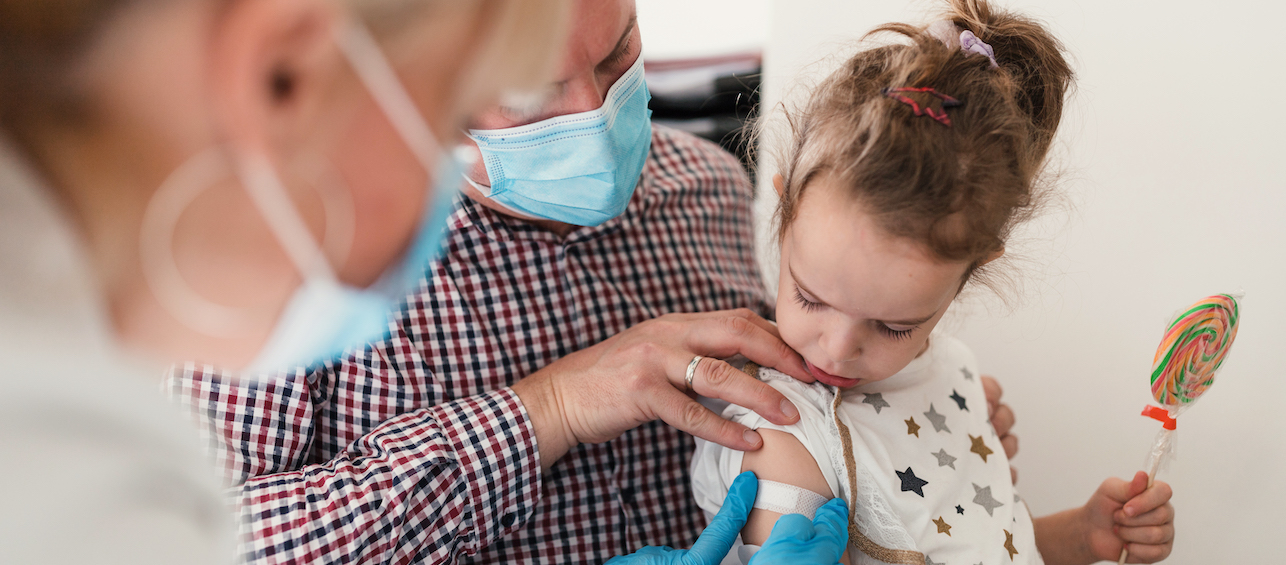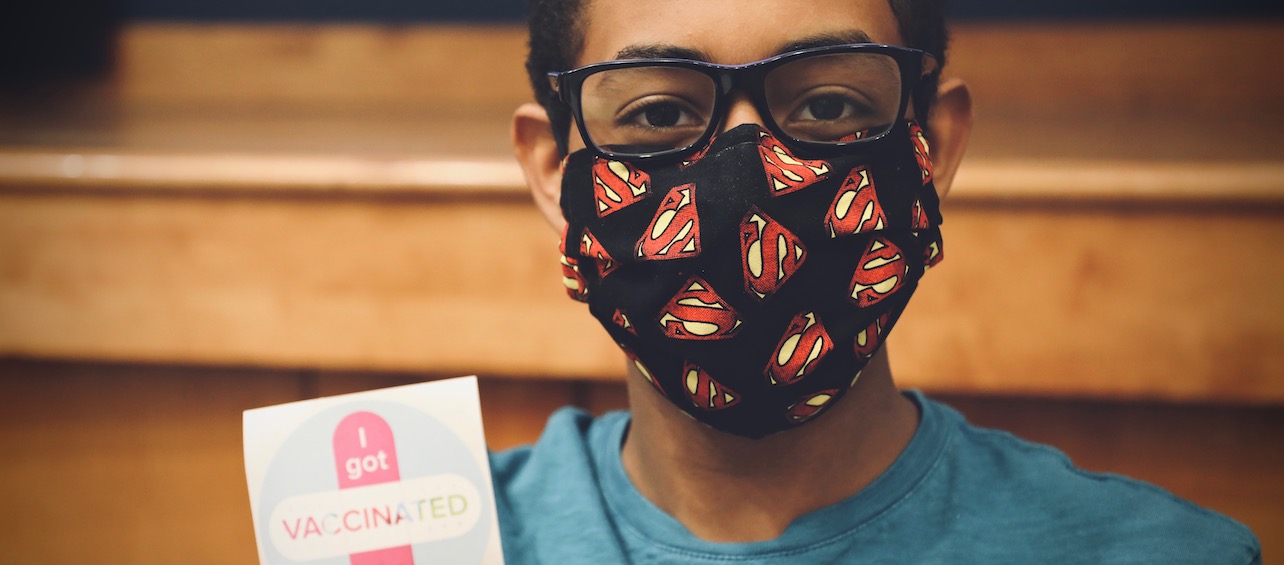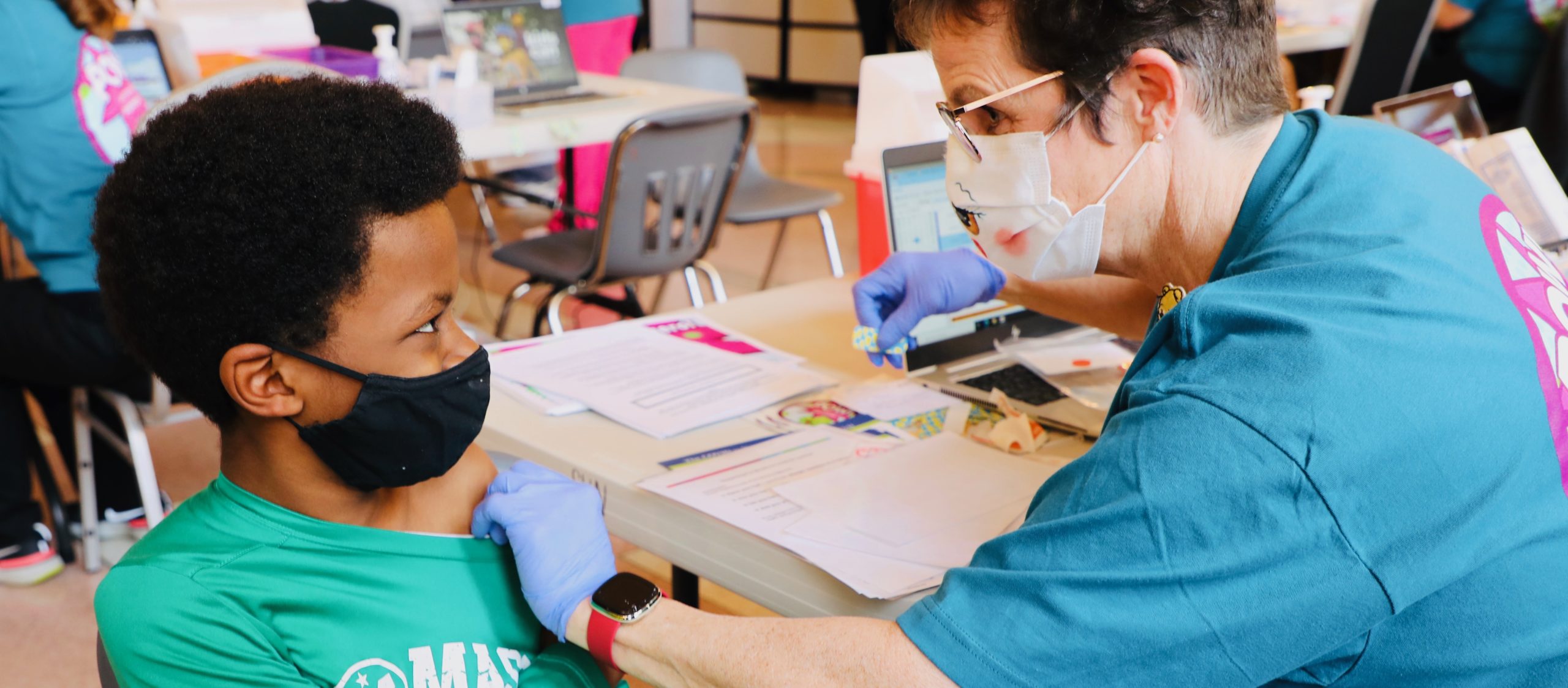As more shelter-in-place orders are relaxing, the CDC recommends that all people, including children, wear masks outside of the home when it’s not possible to maintain six feet of distance from others.
In general, staying home and keeping your distance are still the best ways to protect your family from the new coronavirus, COVID-19. That said, there may be situations in which your children will need to be closer to others, such as when they’re at a doctor’s appointment.
Why Kids Should Wear Masks
It’s important for everyone, not just high-risk individuals, to wear masks because they help protect our community. We believe that many people have the illness without knowing it and without showing symptoms. So wearing a mask helps prevent it from unknowingly spreading from other people to your family and from your family to others. Masks do this by stopping the spread of respiratory droplets that we inadvertently spray when we talk, and especially when we cough or sneeze.
The Type of Masks Kids Should Wear
The CDC recommends a simple, cloth mask for kids. This will help preserve the N95 respirators and surgical masks for health care workers. The exception to this, of course, is children who are immunocompromised. If this is the case for your child, his doctor may recommend something else, such as an N95 mask.
It’s important to note that children under the age of two should not wear face masks. Also included in that list are kids with developmental issues in which wearing a mask would be too upsetting or cause a choking or strangulation risk. Further, kids should not wear masks if they have an underlying breathing issue in which wearing a mask would make it more difficult to breathe.
Finding the Right Fit
It may take a few tries to find the right mask to fit your kids. Many of the make-at-home patterns call for 6×12 inches of fabric for adults and 5×10 inches for children. Even the 5×10 may be too large for younger kids. Indeed, the same mask for the same-aged child can fit differently! Here are some guidelines for proper fit and wear. The mask should:
- Cover both the nose and mouth
- Be snug (so that there are no gaps) but comfortable
- Extend from ear to ear
- Be held by the strings when putting on and taking off
- Be washed daily, if at all possible (having more than one may help)
- Not be worn when eating or drinking
- Not be touched when on their faces
Kids should wash their hands before putting the mask on, as well as after they take it off. Additionally, if they touch it while wearing it, they should wash their hands then, too.
Normalizing Masks
Some kids may be excited to try out their masks, while others may resist it. I recommend trying to normalize them as much as possible. Wear them around the house to get used to them and to set a good example. Have your children practice putting them on their dolls or stuffed animals. Draw pictures about it. Explain to older kids that this is how we prevent germs from getting in our bodies and how we keep our germs to ourselves.
Wearing Masks Should Not Replace Other Prevention Measures
It’s important to remember that wearing masks enhances – and should not replace – the prevention measures that we’ve already been doing. We still need to stay home when we’re sick, keep six feet away from others, and wash our hands frequently. Wearing masks is going to take some time and patience as we adjust. COVID-19 is new to all of us and we may have to continue adapting as we learn more about it.
Editor’s note: This video explains that all visitors coming to Cincinnati Children’s will need to wear face masks, as well as the precautions everyone is taking throughout your visit. It might be helpful for your children to watch it before they come to an appointment.





